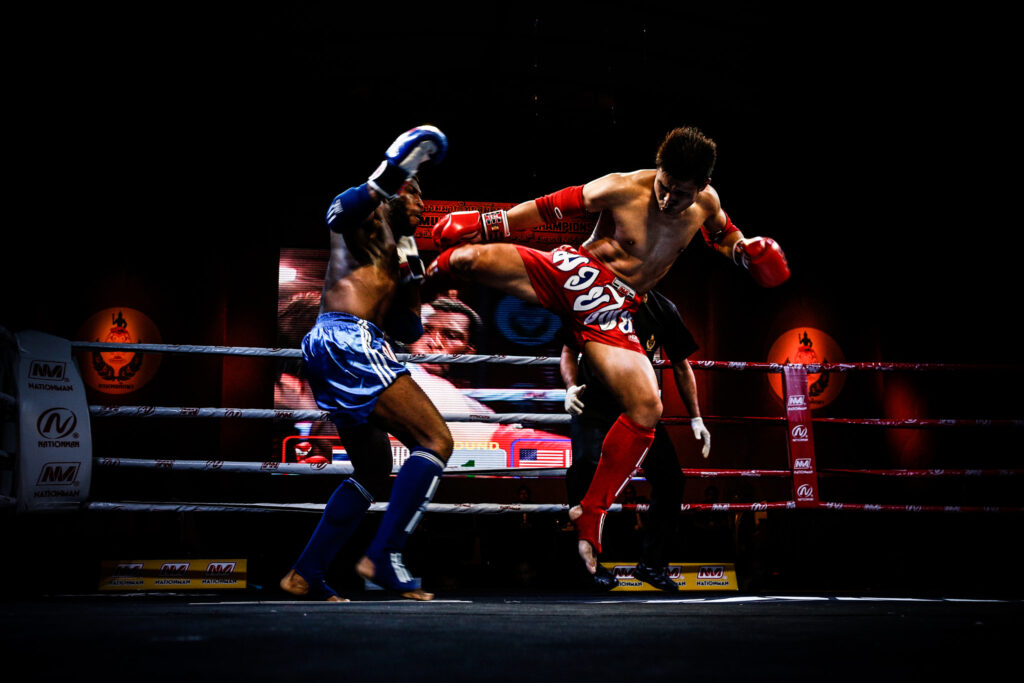IFSF Thai Boxing (Muay Thai) Competition Rules
- Weight Classes:
Competitors are categorized into weight divisions to ensure fair matchups. Typical weight classes include:
- Flyweight (up to 115 lbs)
- Bantamweight (116-122 lbs)
- Featherweight (123-126 lbs)
- Lightweight (127-135 lbs)
- Welterweight (136-147 lbs)
- Middleweight (148-160 lbs)
- Light Heavyweight (161-175 lbs)
- Heavyweight (over 175 lbs)
- Rules and Techniques:
- Allowed Strikes: Thai Boxing allows the use of fists, elbows, knees, and shins for striking.
- Techniques: Techniques include punches, kicks, knee strikes, and elbow strikes.
- Clinch Fighting: Fighters can engage in clinch fighting to deliver knee strikes and control their opponent.
- Scoring System:
- Effective Strikes: Points are awarded for clean and effective strikes, with emphasis on techniques that demonstrate power, control, and technique.
- Dominance: Judges also consider ring control, effective use of combinations, and aggression throughout the match.
- Rounds and Duration:
- Professional Matches: Typically consist of five 3-minute rounds with a 2-minute break between rounds.
- Amateur Matches: Rounds may vary but commonly three 3-minute rounds for safety and developmental purposes.
- Attire and Equipment:
- Traditional Muay Thai Shorts: Fighters wear traditional Muay Thai shorts and are barefoot in the ring.
- Hand Wraps and Gloves: Hand wraps are worn under gloves, which are typically between 8 oz to 10 oz for lighter weight classes and up to 12 oz for heavier divisions.
- Mouthguard: Mandatory for all fighters.
- Groin Protector: Required for male fighters.
- Refereeing and Officials:
- Matches are overseen by a referee responsible for enforcing rules, ensuring fighter safety, and maintaining fair play. Additional judges score the bout from different angles around the ring.
- Knockouts and Decisions:
- Knockout (KO): Occurs when a fighter is unable to continue due to strikes or cannot beat the referee’s count.
- Decision: Matches are decided by judges’ scorecards if the bout goes the distance.
- Tradition and Respect:
- Thai Boxing emphasizes respect for opponents, officials, and the art itself, with fighters expected to demonstrate sportsmanship and adherence to traditional customs such as the Wai Kru (pre-fight ritual).
- Anti-Doping Measures:
- IFSF enforces anti-doping regulations to ensure fair competition and athlete safety. Random drug testing may be conducted before or after matches.
- Championships and Tournaments:
- IFSF organizes championships and tournaments where fighters compete for titles within their weight divisions and earn recognition within the global Muay Thai community.
Join IFSF Muay Thai Competitions and Experience the Art of Thai Boxing at Its Finest!
